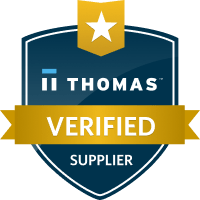
Savannah, GA — The Port of Savannah continues to make headlines as one of the fastest-growing and most vital logistics hubs in the U.S. According to recent figures released by the Georgia Ports Authority, container volume through Savannah reached record highs this year, with double-digit growth in both imports and exports. While this expansion signals strong economic momentum for the region, it’s also causing a ripple effect that many operations managers across the fulfillment, distribution, and warehousing sectors are feeling firsthand: a full-blown labor squeeze.
Port Growth Is Fueling Pressure on the Ground
Savannah’s port has been booming for years, but the past 12–18 months have taken things to another level. Expansion projects—including the deepening of the harbor, new berth additions, and intermodal rail improvements—have allowed the port to handle more volume, more quickly. In just one month this year, the port moved over half a million TEUs (twenty-foot equivalent units), its busiest March on record.
This throughput doesn’t just stay at the port—it moves inland, putting immediate pressure on nearby logistics facilities to receive, store, and ship product faster than ever before. For warehouse managers, that means higher throughput expectations, shrinking processing windows, and a scramble to find enough trained hands to keep pace.
Labor Market Tightens as Demand Surges
The Savannah region is already home to over 80 large distribution centers, including those for Home Depot, Target, Amazon, and Gulfstream. The competition for warehouse labor is fierce—and getting more expensive. Reports from local staffing firms show entry-level warehouse wages rising faster than inflation, with sign-on bonuses and shift premiums becoming more common just to lure in basic headcount.
That dynamic is especially challenging for mid-sized operations. While large corporations can absorb labor cost increases or use national contracts, smaller players in Savannah’s logistics ecosystem are often forced to fight over the same shrinking talent pool. The result: high turnover, unreliable productivity, and rising overtime costs.
It’s Not Just Peak Season Anymore
For years, fulfillment managers planned around “peak season” as a predictable fourth-quarter surge. But now, with e-commerce continuing to push demand year-round and port volumes showing no signs of slowing, many facilities are finding that every season feels like peak.
That means short-term staffing strategies and reactive hiring just aren’t cutting it anymore. The new reality in Savannah calls for flexible, cross-trained, and consistent labor pipelines that can scale on demand—and deliver quality, not just quantity.
How iJility Helps You Stay Ahead
While port expansion is good news for Savannah’s long-term growth, it presents real challenges for operations leaders trying to run lean, productive facilities today. That’s where iJility comes in.
Unlike traditional temp agencies, iJility doesn’t offer generic staffing fixes—we build custom workforce solutions tailored to the demands of your operation. Our team works on-site with clients to understand throughput targets, labor fluctuations, and training gaps, then deploys a workforce strategy that’s both flexible and sustainable.
With iJility, You Can:
- Stabilize headcount with a consistent, right-fit labor pool
- Improve productivity with faster onboarding and cross-training
- Control labor costs through smarter scheduling and reduced overtime
- Scale up or down based on actual demand—not guesswork
We’ve helped fulfillment centers in the Savannah area overcome labor shortages, boost quality, and cut costs—even during record-breaking port activity.
Let’s Talk About Your Operation
The growth isn’t slowing, and the pressure isn’t going away. If your operation is feeling the squeeze from Savannah’s surging port activity, now is the time to rethink your workforce strategy. iJility is ready to help.
📞 Schedule a discovery call today to learn how we can build a workforce solution that works for your unique operation.
Author: Valentine Trent


